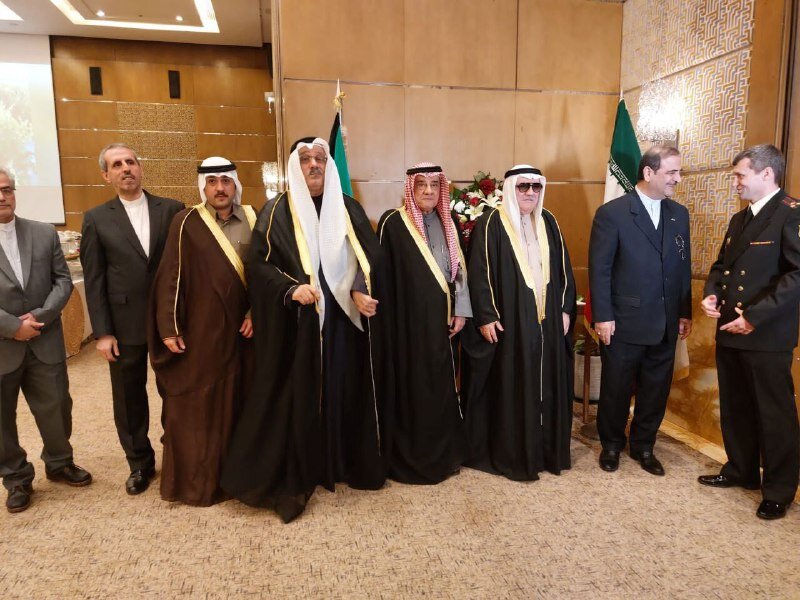Collective security ensures interests of regional countries: envoy

TEHRAN – Iranian Ambassador to Kuwait Mohammad Irani has underlined the need for maintaining collective security in the Persian Gulf region without interference of foreign powers.
Irani explained the role of Iran in solving complex regional issues and emphasized the importance of the collective participation of the regional countries in ensuring their security without foreign interference and considered this action as a guarantee of the security and sustainable interests of all regional countries.
He made the remarks during a ceremony held at the Iranian embassy in Kuwait to mark the 44th anniversary of the Islamic Revolution of 1979. A group of scholars, representatives of parliament and city council, ambassadors of Islamic and foreign countries, members of the Iran-Kuwait Friendship Association and a number of social, political and cultural personalities of this country, in addition to a number of Iranians living in Kuwait, attended this ceremony, and congratulated the ambassador on the arrival of this auspicious occasion, according to Iran’s official news agency IRNA.
In his speech, the Iranian ambassador explained the most important achievements of the Islamic Revolution. “Forty-four years ago on this day, one of the most popular revolutions of the 20th century took place in Iran. Based on the role and presence of the people in the social and political arena of the country, under the leadership of Imam Khomeini, it removed the dictatorial and foreign-dependent regime from the political scene of Iran,” the ambassador said.
He then addressed the security situation in the region, saying that collective security without foreign interference ensures the interests of the region’s countries.
He also said that Iran-Kuwait relations are returning to normalcy after the Covid-19 denouement. “My country's relations with the friendly and neighboring government of Kuwait are gradually returning to their normal course after the difficult period of Corona,” he said, adding that “we witnessed the holding of commissions on consular, legal, coast guard and counter-narcotics issues, and these developments are due to the will of the leaders of the two countries to deepen these historical relations.”
Iran and Kuwait upgraded their ties in 2022. In August last year, Kuwait promoted diplomatic relations with Iran to ambassadorial level after more than six years.
Kuwait reduced diplomatic ties with Iran in 2016 to the level of charges d’affaires. Two years later, Kuwait also recalled its charge d’affaires from Tehran.
The decision to lower diplomatic ties followed an attack on the Saudi embassy in Tehran by a group of angry protestors in early January 2016 over the execution of 47 activists, including cleric Sheikh Nimr al-Nimr.
After the attack on the embassy, which was even censured by the top officials in Tehran, the Saudi kingdom cut diplomatic ties with Iran. Other Persian Gulf Arab countries also followed Saudi Arabia and lowered diplomatic ties with Iran.
However, political ties between Iran and its southern regional neighbors are being improved, especially after Iran and the Saudi kingdom have so far been holding five rounds of talks in Baghdad.
Kuwait’s new ambassador to Tehran, Badr Abdullah al-Munikh, met with Iranian Foreign Minister Hossein Amir Abdollahian and submitted a copy of his credentials to him.
